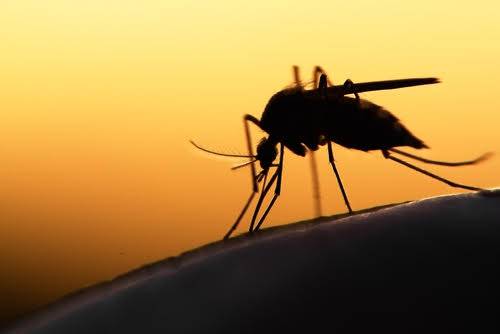
AFTER years of failed attempts and missed opportunities, Nigeria may be on track towards the elimination of malaria following signals showing that effective case management could be acheived with prompt diagnosis with the recommended Rapid Diagnostic Testing (RDT) /microscopy before use of antimalarial medicines.
According to a Professor of Paediatrics and Child Health and Director, Centre for Malaria Care, University of Ilorin Teaching Hospital, Prof. Olugbenga A Mokuolu, indicators by the World Health Organisation, WHO, show that increased malaria prevention and control measures are dramatically reducing the malaria burden in many countries including Nigeria.
Mokuolu, who spoke in Lagos during a dinner hosted for media executives by the Society for Family Health, SFH, in his lecture entitled: “Malaria Elimination In Nigeria: Where We Are & Where We Want To Be”, quoted the National Demographic Health Survey, NDHS, which noted that ownership of at least one Long Lasting Insecticide Net, LLIN, increased from 2 percent in 2003, to 8 percent in 2008 and 55.5 percent in 2013.
He said: “The utilization of LLINs by under-5 children has increased from 1 percent in 2003 to 17 percent in 2013, 39 percent in 2015. Utilization of LLINs by pregnant women has increased from 5 percent in 2003 to 16 percent in 2013 (NDHS) and 43 percent in 2015 Malaria Indicator Survey, MIS.
In his view, Nigeria has recorded a decline in malaria prevalence in children under 5 from 42 percent. Other areas the country recorded significant progress according to him include; “A decline in prevalence of anaemia from 12.6 percent to 9.3 percent, increase in the use of 2 or more doses of SP-IPTp from 13 percent to 37.2 percent among pregnant women attending Ante-natal clinic, ANC. There were also increases in those who took antimalarial same day with onset of fever from 26 to 35.4 percent.”
But Nigeria is not yet out of the woods and the fight is far from over as about 3.2 billion people remain at risk of malaria with estimated 214 million new cases of malaria and 438 000 deaths.
Earlier, Managing Director, the Society for Family Health, SFH, Mr Bright Ekweremadu, blamed ignorance for the trend and noted that over US$ 3 billion is lost to malaria yearly due to out of pocket treatment and prevention costs.
He said the sum lost to malaria annually could pay the annual salaries of 2.2 million Nigerians on minimum wage.
“Ignorance is deadly as studies have shown that a significant contributor to malaria’s deadly count in Nigeria is inadequate knowledge and information on the part of caregivers and the citizenry. He said: “caregivers are inadequately empowered with appropriate health education to change their behaviour and use of malaria commodities” with consequences for prevention and treatment of the ailment.